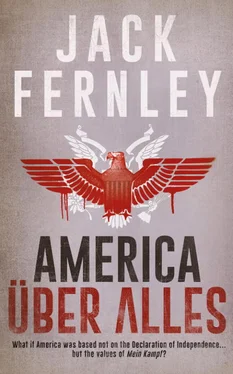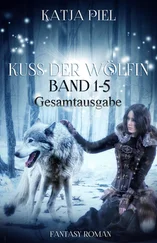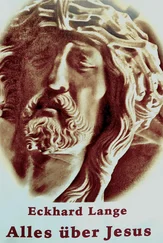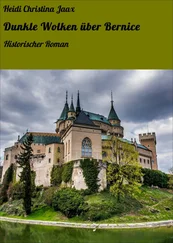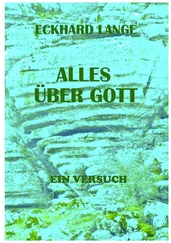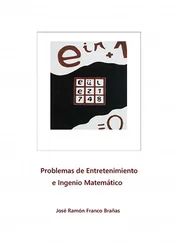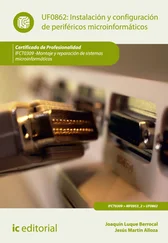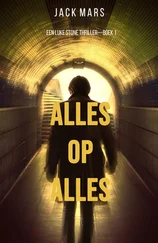‘My Führer.’ Reitsch felt tears welling in her eyes.
Hitler slowly eased himself into the chair next to von Greim’s bed.
‘You are both the epitome of the ideal German. Even a soldier has the right to disobey an order when it is futile and hopeless. But you, you came here, risked everything. You have never wavered in your love for the Fatherland and for its poor servant, Adolf Hitler. If I had a hundred legions made up of Greims and Reitschs, ah! We would have seen off the Slavic hordes. But the German people have shown themselves to be weak, Herr Generaloberst, weak!’
‘My Führer, we are as honoured as ever to be with you. But, let us lead you from Berlin. If you were to fly south, there you can command our forces safely once again. There is too much risk in Berlin, the Bolsheviks are too close. You must leave. The German people need you safe. We must leave for Bavaria, to carry on the war for civilisation.’
‘Generaloberst, I am only the Führer as long as I can lead. And I can’t lead my troops and the German people while sitting remotely on a mountain top. I have to have authority over armies that obey me. I must be at the centre of the struggle. I’d regard it as a thousand times more cowardly to commit suicide on the Obersalzberg than to stand and fall here with a pistol in my hand. Let me win a victory here, however difficult, however tough, however impossible, it may appear in this moment. Then I hold the authority, the authority to do away with the sluggish forces that are holding us back. Then I’ll work with the generals who have proved themselves. Generals like you. And we will be victorious.’
He stood up, slowly, painfully, and held von Greim’s hand in his.
‘Only here can I attain that victory. Even if it is only a moral one, it’s at least the victory of winning time. Only through a heroic attitude can we survive this hardest of times. If we win the decisive battle, I would be proved right. And even if I were to lose—’
‘No!’ screamed Magdalena Goebbels.
‘And even were I to lose, then I will have perished decently, not like some inglorious refugee sitting in Berchtesgaden and issuing useless orders from there. If we leave the world stage in disgrace, we’ll have lived for nothing. Rather end the struggle in honour than continue in shame and dishonour a few months or years longer. I am not made to run. My victory will come here in Berlin – or my honourable death.’
Again he slumped back to the chair, a faraway stare coming across his pale face. Von Greim studied Hitler. The complexion deathly, sweat pouring off him, the relentless shaking left hand, this was not the man he had known since 1920, when von Greim had flown a then unknown thirty-year-old army propagandist to Berlin to observe the Kapp Putsch. Nor the man who had entranced him from the beer halls of Munich to the fields of Nuremberg. Now that man seemed finished. But Adolf Hitler suddenly snapped alive, once again there was that unmistakable passion in his voice, an echo of the furious oratory that had transfixed von Greim in Munich twenty-five years earlier.
‘But everything is not lost! The situation in Berlin looks worse than it is. Wenck’s army is outside Potsdam, they are coming. It will be here, perhaps tonight, tomorrow or at the latest, in two days. They will join with the Ninth Army and then we will see the Bolshevik behemoth for what it is! We will hold Berlin and then the Americans and the British will understand there will be only one way to defeat the Russian Moloch – an alliance with Nazi Germany. And the only man to lead such an alliance is me. So, you see, victory is still in our destiny.
‘And we have one more card to play, the ultimate card, the product of our scientific superiority, the card that will demonstrate to the world that National Socialism is the greatest vehicle for harnessing the powers of the human imagination. In this, our darkest hour, when our enemies surround us, mock us, humiliate us, in this hour when darkness seems to be total, we shall emerge into the light triumphant!’
Von Greim raised his head, ‘So it is true? We have it, the weapon to end this war, as you promised we would?’
‘We do, we do. And here lies the reason I ordered you to Berlin, both of you. For I am frail—’
There was a low murmur of dissent from Reitsch.
‘No, I am frail, my dear, my body is disappointing me. This weapon may have arrived too late for me to harness its powers. But I am blessed with having the perfect agents for its delivery and with it the delivery of our triumph. Generaloberst—’ Hitler rose to his feet once more. ‘In the name of the German people, I give you my hand. A traitor must never succeed me as Führer. You will ensure that does not happen. I can no longer trust the Army. The Luftwaffe yes, but the army – traitors, cowards, idiots, all of them! Even the leadership of the SS, they have proved themselves unfaithful – cowards, scum! This is why I turn to you. I am promoting you to Generalfeldmarschall. You will lead a group of our finest men on this mission. They have been training for six months. Our finest, most loyal SS division. Our pride. They are the very finest of the Reich and they are waiting for you to assume leadership.
‘There is little time. You must travel now, with Reichsminister Goebbels, to Dahlem, the Kaiser Wilhelm Institute. The Russians are desperate to capture the Institute, but you will get there before them and unleash this weapon. Goebbels will explain the details of the plan to you. And you, Hanna Reitsch, it is important that you go as well. All will become clear when you arrive.
‘There is an armoured car waiting for you. Generalfeldmarschall, I know your wounds are painful, but you must leave, this instant.’
‘My wounds are nothing, mein Führer. I shall take this commission with pride. I believe we will meet again in the future and celebrate our eventual victory.’
‘Ah! So do I, Robert von Greim, so do I!’
And with that the leader of the German people turned on his heels and walked as sharply as he could out of the room, no longer the forlorn figure that entered it.
Magdalena Goebbels pressed something into Reitsch’s hands. ‘Dear Hanna, take this. Please. A symbol of my affection for you. Please, always think of me when you see it.’
It was a striking ring, gold with a large blue sapphire cabochon, surrounded by a ring of ten perfectly cut diamonds. Clasping both hand and ring, Magdalena looked into her friend’s eyes and said: ‘I wish I were going on this journey. Both Joseph and I wish we had been chosen by the Führer. You and Robert, you are blessed.’
The drive to Dahlem was perilous. The city, a roaring monster of flash and explosion. Constant bursts of detonation, shells raining down from every direction, tongues of orange, red and white flames licking buildings and sending them crazy, into a burning, exploding and collapsing fever. Bricks and debris bounced off their armoured car, the driver weaving between falling buildings and burning vehicles on roads pitted by craters. The closer they got to the Kaiser Wilhelm Institute the more intense it became.
To von Greim it was no surprise: since the 1930s, the Institute had been the centre for experiments with nuclear fusion under Werner Heisenberg and his team. The Soviets were hoping to take the Institute and with it the secrets of Germany’s atomic-bomb programme. He had been under the impression that Heisenberg and his team had been moved in January to the Black Forest to ensure that such a capture could not happen. But then the Führer had hinted that the building did indeed house a weapon. He was perplexed and wanted to ask Goebbels, but, under the cacophony of explosions, conversation was impossible in the car.
Читать дальше
